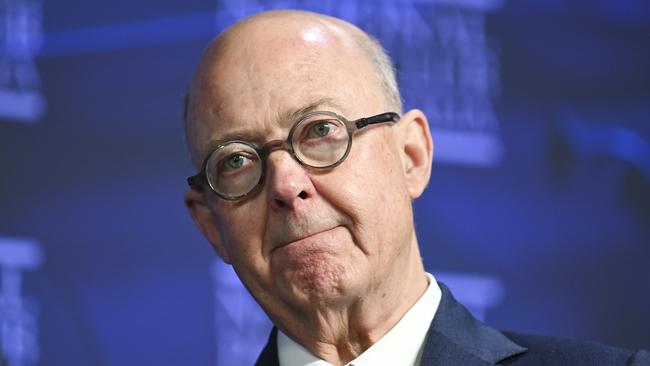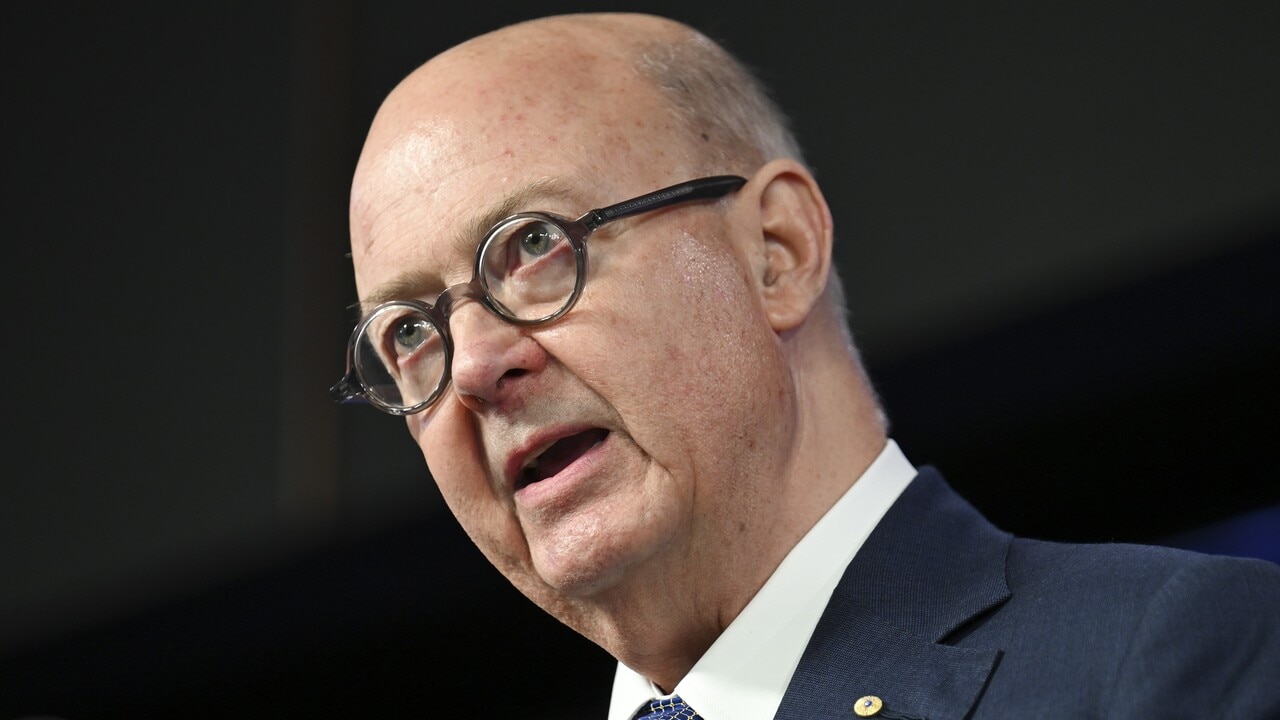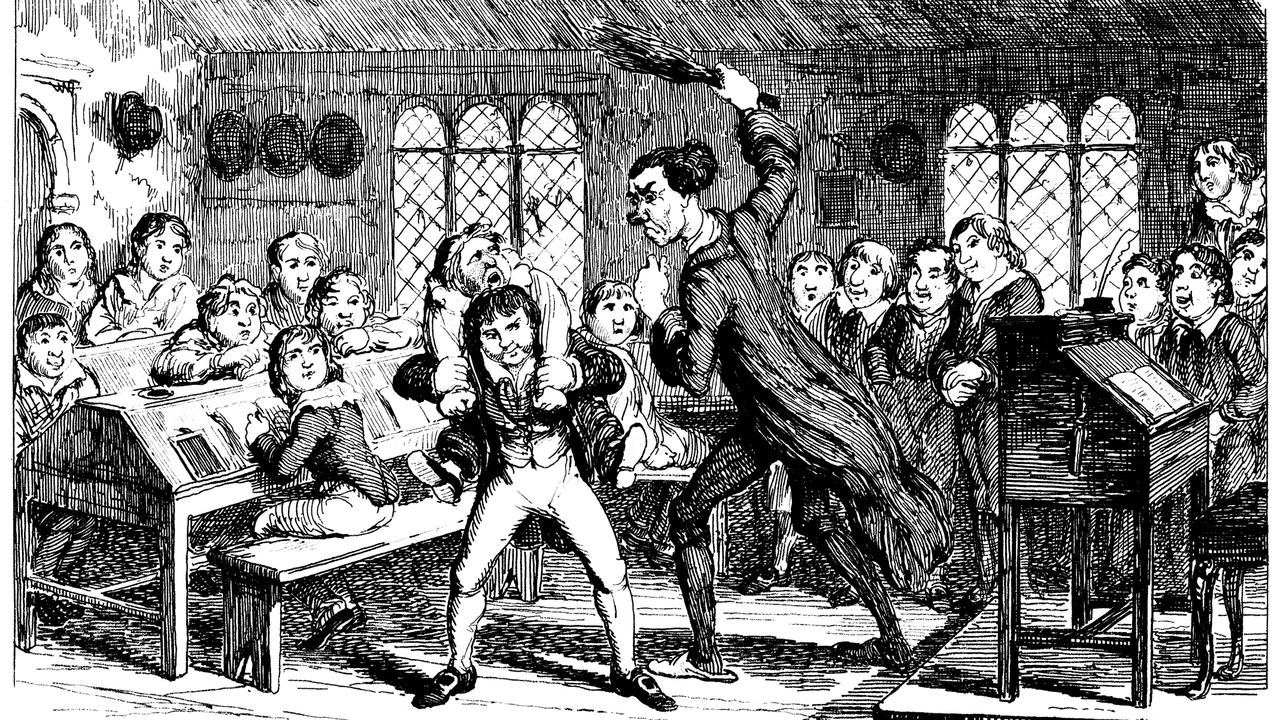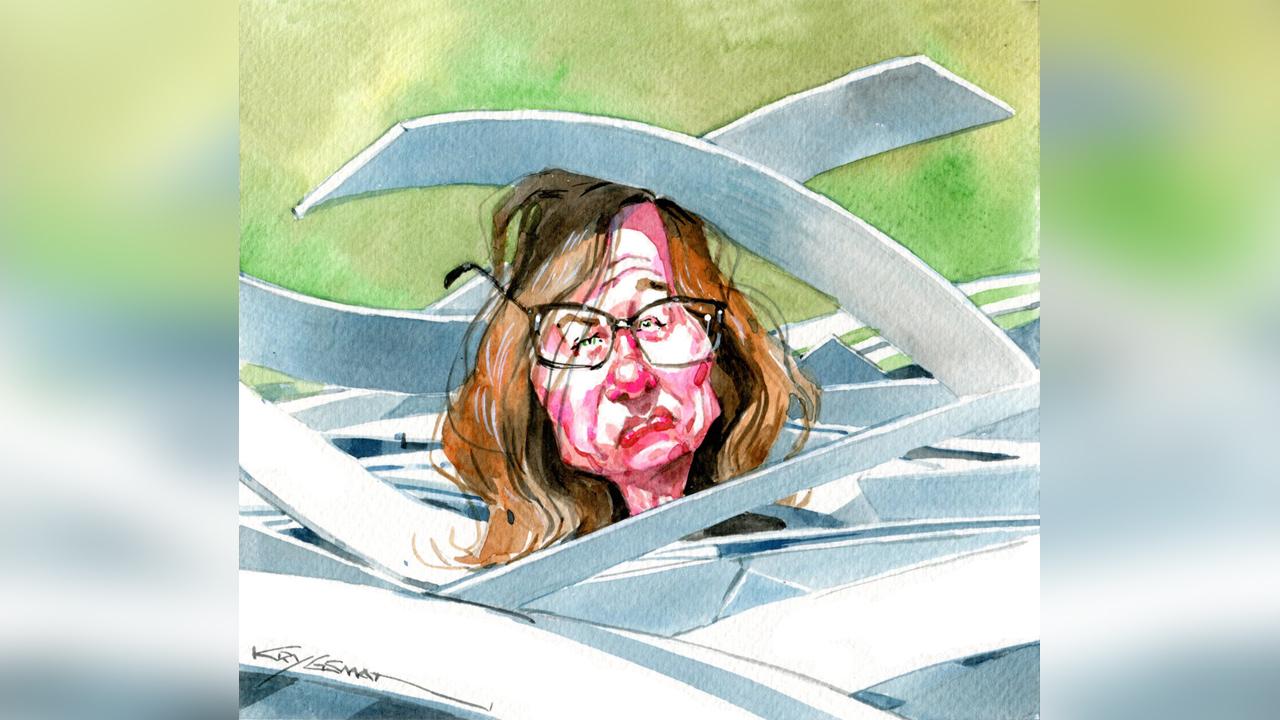
It was one of those familiar occasions when an ABC chair begs for more funding from the government. Williams’s position is a familiar one in that he maintains that the taxpayer-funded public broadcaster is doing it tough on an annual handout of $1.1bn a year.
His address was somewhat vague. It mentioned only a couple of names: Vladimir Putin, Andrew Tate, Emmanuel Macron, British historian Mark Mazower and ABC TV personality “Tom Gleeson’s (Hard Quiz) scriptwriters”.
He spent considerable time railing against misinformation and disinformation without giving any examples of what he has in mind with respect to the contemporary debate. But the occasion came to life at the question/discussion period. Up stepped ABC regional reporter Jane Norman, asking a question about Rogan, whom she described “as the world’s most popular podcast host – he has three billion listeners”. Norman added that Rogan had “successfully captured that bro-market in America”. She then asked: “How would or should the ABC be going about capturing that kind of audience?”

It is not clear whether Norman had taken in Williams’s warning about misinformation and disinformation. Sure, Rogan has millions of listeners – but well short of three billion.
Williams started off well by stating: “Look, I’m not sure that I’m the right person to respond to that question. I am not a consumer or an enthusiast about Mr Rogan or his work.”
Norman interjected with an ironic “shocking”. Then Williams went on to fang the American podcaster, declaring that he preyed on “people’s vulnerabilities” including their fear and anxiety. He described the podcaster’s work as “deeply repulsive” and said he was “absolutely in dismay that” Rogan “can be a source of public entertainment when it’s really treating the public as plunder for purposes that are really quite malevolent”.
All this from a speaker who said he was not the right person to answer the question since he was not a consumer of Rogan’s work. But there you go.
Williams’s performance reminded me of a recent appearance by conservative Canadian psychologist and author Jordan Peterson on Fox News. Appearing recently on Gutfeld!, Peterson was asked to reflect on “what’s been going on in America” since the US presidential election. He responded that “it’s left me speechless, fundamentally”. But then Peterson went on to speak, declaring “it’s surreal and literary at the same time” – whatever that may mean. And he mentioned Musk.
Williams’s spray was noted by Rogan, who cited it on X with this: “LOL WUT”. Musk responded: “From the head of Australian government-funded media, their Pravda”. Hyperbole, to be sure, but amusing nevertheless.
LOL WUT https://t.co/xXJ9DlYr55
— Joe Rogan (@joerogan) November 27, 2024
The ABC chairman has made numerous speeches since taking over from Ita Buttrose last March – too many, it would seem. He has delivered some good advice, including warning ABC journalists not to be political activists and to eschew bias. But Williams has yet to even concede the taxpayer-funded public broadcaster’s essential problem – namely, its lack of viewpoint diversity.
Presenting ABC TV’s Media Watch last Monday, a somewhat defensive Paul Barry declared “the ABC is often accused of being a conservative-free zone but for the past four decades Macca has been a staunch defender of old-fashioned values”.
Ian McNamara (aka Macca) presents Australia All Over on ABC radio. It runs from 5.30am to 9.30am on Sunday mornings. Hardly prime time. And McNamara is very much the exception. Moreover, he is certainly not presented by the ABC as one of its high-profile journalists.
Barry himself is part of the problem. Since its inception in 1989, Media Watch has had only left-of-centre or so-called progressive presenters. Namely, Stuart Littlemore, Richard Ackland, Barry, David Marr, Liz Jackson, Monica Attard, Jonathan Holmes and Barry (again). Linton Besser will take over from Barry next year. Not a conservative among this lot. And all are part of the ABC family.
Last week, the ABC announced its program for 2025. The taxpayer-funded public broadcaster is a reminder of the Eagles’ song Hotel California, in that you can check out of the ABC but you never leave.
Radio National’s line-up for next year provides an example. Fran Kelly, who once declared she was “an activist”, checked out of presenting RN Breakfast from Mondays to Fridays a couple of years ago. She returns next year with a daily RN evening program.
The ABC’s Sally Sara will take over from Patricia Karvelas at RN Breakfast. Marc Fennell will present a history program and Tim Burrowes will host a new program titled MediaLand. Not a conservative among this lot.
Karvelas will do an afternoon program on ABC TV. Nick Bryant will take over from Kelly presenting RN’s Saturday Extra and Julian Morrow will continue hosting RN’s Sunday Extra. Marr has agreed to continue presenting RN’s Late Night Live in 2025 where his regular guests include Laura Tingle (on Australian politics) and Bruce Shapiro (on US politics). Not a conservative among this lot.
Sarah Ferguson remains as the presenter of ABC TV’s 7.30. This despite her hopelessly wrong 2018 three-part series titled Trump/Russia. It alleged that Donald Trump had colluded with Putin to win the 2016 US presidential election. A conspiracy theory if ever there were one. This despite Williams’s warning about misinformation and disinformation.
Unless Williams presides over the introduction of viewpoint diversity into the ABC, its impact will continue to decline. That’s the inevitable result of the public broadcaster running activist campaigns against the likes of Trump and cardinal George Pell.
Williams’s NPC speech suggests he is in denial about the ABC’s central weakness.
Gerard Henderson is executive director of The Sydney Institute.







It’s a rare occasion when a weekly Wednesday speech at the National Press Club in Canberra makes news in North America. But it occurred on Wednesday after recently appointed ABC chairman Kim Williams managed to raise the ire of not only US podcaster Joe Rogan but also Elon Musk, who is said to be the wealthiest person in the democratic world.